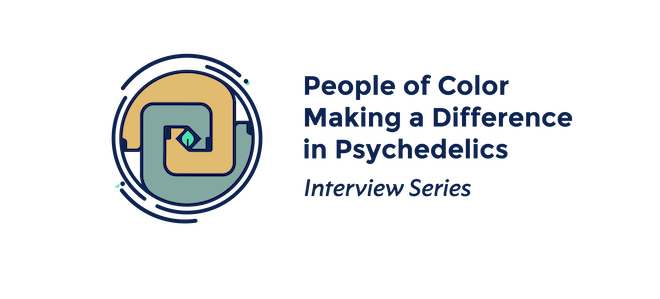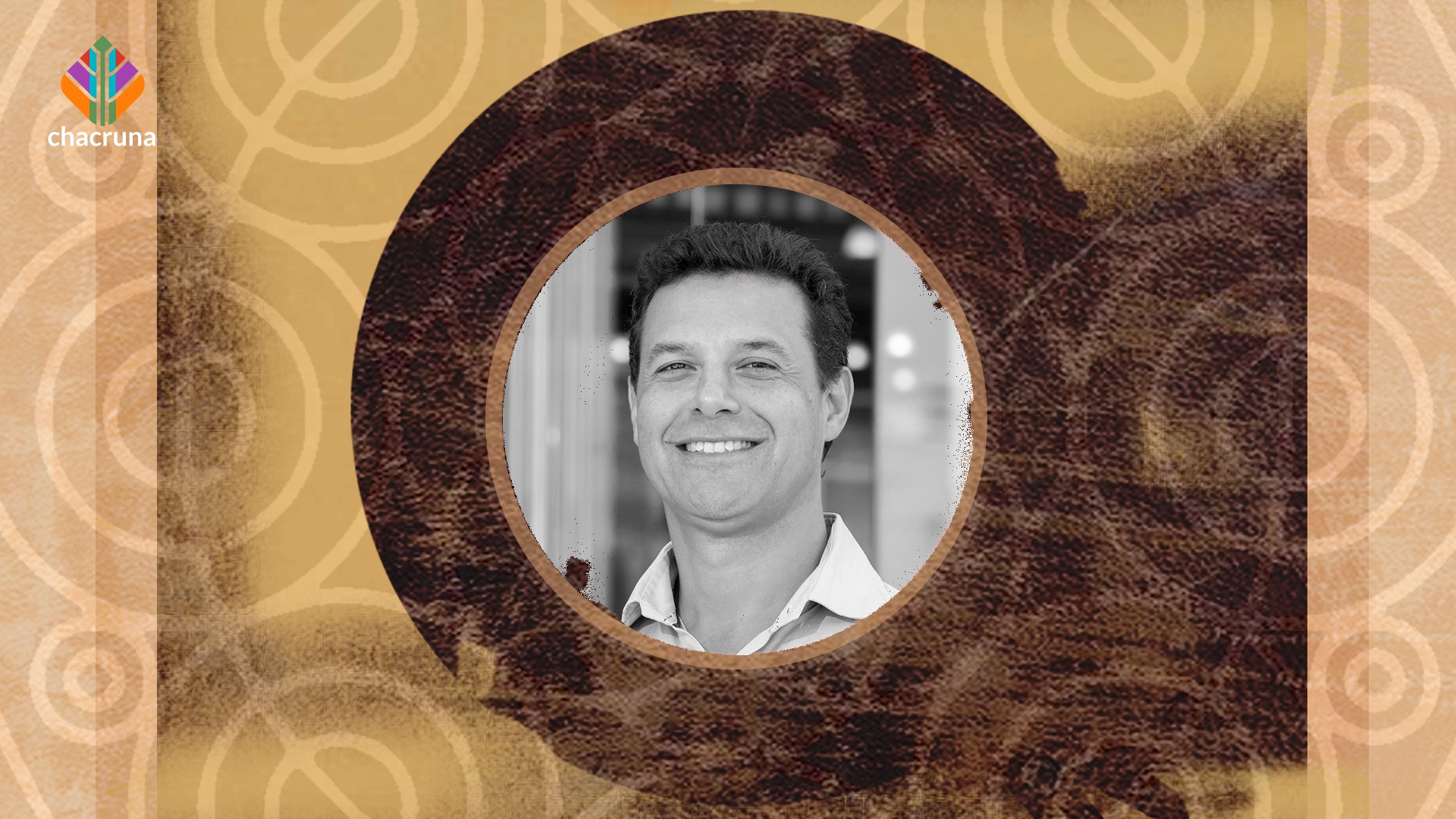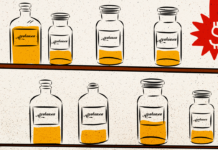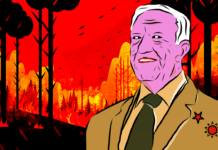- Entheogens, the African Diaspora, and BIPOC communities with Kufikiri Imara - January 20, 2021
- Innovating Native American Health Care Using Culture and Technology With Sutton King - January 11, 2021
- Navigating the Personal and Political in MDMA-assisted Psychotherapy with Sara Reed - December 29, 2020

As a family physician, ayahuasquero, and author, Dr. Joe Tafur has been exploring the biology of emotional healing for over a decade. A journey that began in medical school, Dr. Tafur found the Western approach to health care to be capitalistic, oppressive, and limited in scope. After falling into a depression, Dr. Tafur began exploring plant medicine treatments such as peyote and ayahuasca.
In his book, The Fellowship of the River: A Medical Doctor’s Exploration into Traditional Amazonian Plant Medicine, Dr. Tafur chronicles his trip down to the Peruvian Amazon to try ayahuasca. What he discovered amazed him, which inspired Dr. Tafur to stay in the jungle and study ayahuasca shamanism. He presents several individuals that come to the center with conditions such as depression, chronic pain, migraine headaches, addiction, and PTSD. All the patients showed significant improvements, if not miraculous signs of healing.
Searching for the link between these seemingly unrelated illnesses, Dr. Tafur came to find that each individual had experienced profound emotional and spiritual healing. Now, he is exploring how emotional healing from psychedelics could potentially heal our genetics; Dr. Tafur is conducting a study alongside the MAPS phase three clinical trials to evaluate whether epigenetic changes did occur in the participants.
I sat down with Dr. Joe Tafur to discuss his book, the role of our emotions in our physical health, the effect of trauma on our genes, and the potential for psychedelics to heal our genes.
MM: In your book, The Fellowship of the River: A Medical Doctor’s Exploration into Traditional Amazonian Plant Medicine, you describe becoming interested in ayahuasca as a Western medical doctor. In the Amazon jungle, you decided to study ayahuasca shamanism, which led you to explore the role that emotional healing plays in overall health. How did this book come about?
JT: In my second year of medical school, I was already depressed and frustrated with the way that we were being educated and treated. In my book, I mentioned that 30% of medical students were depressed in North America. The number had climbed to 46 percent by the time the book was released. It’s strangely high, considering we’re talking about future healthcare workers.
MM: What frustrated you about Western medicine?
JT: The medical tradition in the West is based on materialism. The spiritual or emotional is not factored into the equation, for the most part. The roots of illness are thought to be in biology or chemistry. Chemical imbalances, for example, came to be considered the roots of mental illness. As Western doctors, we were not being taught to ask our patients questions such as, “How do you feel in your heart and soul about your life?” These questions were seen as irrelevant.
MM: Was there a time that doctors did ask these questions? Weren’t clergymen also considered therapists, in a sense?
JT: Before the development of mental health services, the clergymen would help people work through their major life issues, such as traumas incurred from war. In Indigenous cultures, a clergyman would translate to a medicine person, because they address the physical, emotional, and spiritual elements of the problem. A traditional Navajo healer takes care of someone’s physical health, but they also take care of the person’s soul.
I’m Colombian, though I am from the United States. Materialism doesn’t dominate the culture as much as it does in the US. Colombian culture is much more spiritually and family oriented. Furthermore, my father was a psychiatrist who studied at the Menninger Foundation in Kansas because it was known to have spiritual leanings. I was brought up in an environment where love was a central concept. I wanted to be a doctor, but Western medicine wasn’t spiritual anymore. It was capitalistic, arrogant, and valued status, competition, and getting ahead. I wasn’t interested in that kind of cutthroat environment. I pursued a biology degree to study nature instead.
MM: While seeking treatment for your depression, you began exploring the world of plant medicines, which eventually led you to voyage to the Amazon jungle and try ayahuasca. What did you discover there?
JT: I finished my family medicine residency in 2007, and was heading into my fellowship. A friend of mine wanted to go down the Amazon River, and I wanted to try ayahuasca. We decided to do it together. I was totally blown away by what the ayahuasca shamans were doing, and I ended up staying in the jungle for six years after my fellowship, apprenticing in ayahuasca shamanism. The ayahuasqueros seemed to be getting results for conditions that are difficult to treat in Western medicine. That was exciting to me.
MM: You began observing various people come to the center seeking healing from different ailments. What happened?
JT: I started tracking these stories as a doctor, following the link between these peoples’ illnesses, because they were all showing improvements. As a Western medical doctor, that appeared strange to me because we would classify these conditions as being unrelated. The healing that was occurring suggested otherwise, which told me that there was physiological link between them.
How was ayahuasca able to work on psoriasis, chronic migraines, and Crohn’s disease, for example? From what I observed in the jungle, addressing the underlying emotional trauma resulted in incredible signs of healing.
How was ayahuasca able to work on psoriasis, chronic migraines, and Crohn’s disease, for example? From what I observed in the jungle, addressing the underlying emotional trauma resulted in incredible signs of healing.
MM: Can you go into more depth about the concept of emotional health and the role it plays in one’s overall health? How does this relate to genes?
JT: We’retalking about one’s ability to cope with their emotions, stress, and their relationships; that’s what I’ve observed. Emotions affect our health in a big, big way. Suppressed emotion is stored in the body, so it cannot express itself, or process through the body. It will lead to some form of blockage which will turn into a physical problem, such as an irritable bowel syndrome, for example. Unprocessed emotions, in other words, can result in digestive problems. That would be a simple example.
MM: What are epigenetics and what role do they play in trauma?
JT: Epigenetics is the study of gene expression. The gene is the code, which you can’t change. However, the way our genes express themselves can change. They can be modified or conditioned over the span of someone’s life. For example, those put in concentration camps in World War II were conditioned to the point that their biology actually shifted. It was even passed through the genes into their offspring. Right now, I’m conducting research to find out whether we can decondition trauma from our biology.
We can show that trauma from childhood or from combat could result in an epigenetic modification. The trauma imprints itself onto the genes, which, in turn, affects the way the gene expresses itself. Epigenetics show us that trauma exists on a physical and chemical level.
We can show that trauma from childhood or from combat could result in an epigenetic modification. The trauma imprints itself onto the genes, which, in turn, affects the way the gene expresses itself. Epigenetics show us that trauma exists on a physical and chemical level.
MM: Which genes could a trauma affect?
JT: PTSD has been shown to affect the genes associated with stress response. If we could show that psychological trauma was linked to maladaptive epigenetic changes, we could possibly shift the software and improve someone’s quality of life. We may even be able to heal a person as close to fundamentally as we could. In considering that these epigenetic changes are passed down to future generations, we could potentially heal blood lines.
MM: Could you provide another example that demonstrates how epigenetics can be altered over the course of a lifetime?
JT: We’re seeing diabetes type II being triggered and becoming more prominent among the population, especially the young. Though some people think that it’s a genetic illness because it’s inheritable, they don’t realize that environmental influences and nutrition can alter your genes over a life span. It could start with eating too much sugar, which can then compound for any number of reasons, ultimately altering the way one’s genes function.
MM: Are you starting to see now that emotional stress can affect the genes as much as nutrition can, for example?
JT: We’re seeing that childhood stress could lead or contribute to depression, anxiety, addiction, and PTSD later in life. It’s a big area of research happening right now with epigenetics. The implications for psychiatry are huge because of the emphasis that has been placed on behavioral therapy. However, underlying a behavior might be an accumulated maladaptive stress response. With ayahuasca and psychedelic medicine, I witnessed the potential to heal at that profound level.
MM: What is it about the psychedelic that enables healing to happen?
JT: Suppressed emotional content is able to come to the surface so that it can be processed. It also opens the door to a spiritual perspective. We have scientific evidence that shows that the mystical experience plays an essential, therapeutic role in addressing someone’s concept of self-love, acceptance, and forgiveness. Is love mysterious? Yes, it is. That’s part of it too. Currently, I am looking for the biology that responds to the mystical experience.
MM: On that note, what is the Modern Spirit project that you’ve launched with MAPS?
JT: Modern Spirit is a nonprofit dedicated to the value of spiritual healing in modern health care. With the Modern Spirit Epigenetic Project with MAPS, we’re piggybacking off the phase three MDMA clinical trials. MDMA is currently in the last phase of the approval process for the FDA in order to become a prescription medication for PTSD. MDMA is being considered as a breakthrough treatment. We’ve collected 23 saliva samples from participants pre and post treatment to see if the healing is leading to biological changes on the epigenetic level. MAPS has invited us to participate in the next phase of the study, which will open MDMA treatment up to more people. We’re raising more money in order to fund the project, so we have a crowdfunding page for those interested in supporting this.
MM: What would the implications be if you were able to show that psychedelics can change the way genes express themselves?
JT: If we are able to show that psychedelic medicine effectuates shifts in epigenetics, it would be one of the biggest breakthroughs in medicine in recent history.
Art by Mariom Luna.
Take a minute to browse our stock:
Did you enjoy reading this article?
Please support Chacruna's work by donating to us. We are an independent organization and we offer free education and advocacy for psychedelic plant medicines. We are a team of dedicated volunteers!
Can you help Chacruna advance cultural understanding around these substances?














